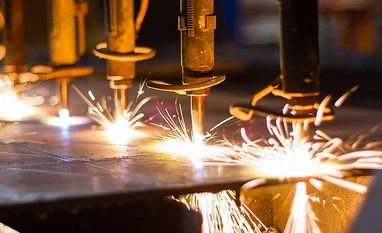On Friday, the government imposed MIPs on 173 steel products to protect domestic players. This duty is going to remain valid for a period of six months. With the MIP, imports would become costlier by 26-70 per cent, said a report by Prabhudas Lilladher.
“We are looking at anti-dumping and countervailing duties as the next measures to fix the steel import issue since these duties are typically placed for three-four years,” Sanak Mishra, secretary-general at the Indian Steel Association, told Business Standard on Monday.
More From This Section
Integrated primary steel producers like the Sajjan Jindal-led JSW Steel, Jindal Steel & Power, state-owned Steel Authority of India and Tata Steel will be among the biggest beneficiaries of the MIP.
"We expect the industry will file the application for anti·dumping duties by the beginning of March. Given the process involved in anti·dumping awards, the MIP will provide major interim relief to the sector," said the Prabhudas Lilladher report.
The industry will now study each of 500 products to find the extent of injury due to imports. “Of course, not all will qualify for the next level of duties we plan to apply for, but we will investigate injury to all,” Mishra said. “Apart from countervailing and anti-dumping duties, the safeguard duty is an option for some products,” he added.
“Anti-dumping duties are more permanent (three-four years), legally binding and fall under World Trade Organisation (WTO) norms. They are more beneficial than the safeguard duty or the MIP,” said an analyst with a local brokerage.
The new MIP will help domestic steel producers to improve their realisations for the next couple of quarters.
“The pricing scenario is expected to change in the next few months as companies were earlier selling at a distress,” said Giriraj Daga, portfolio manager at SKS Capital & Research.
Brokerages expect steel producers to raise prices by about Rs 3,000-4,000 per tonne in March. “Prices are expected to go up gradually,” said an analyst with a local brokerage. “An improvement in margins will be seen in all companies in the coming months.”
Some brokerages, however, feel the hike in prices will be limited. “Poor profitability of the user industry, overcapacity in the sector (around 13 million tonnes of supply just added) and a shift of steel product imports to finished products will limit the increase in prices,” said the Prabhudas Lilladher report.
Some brokerages raised the issue of possible circumvention of the MIP via over·invoicing or sourcing through overseas subsidiaries. Others said intense government monitoring would discourage such practices.
“Imports will come in through major government ports and the government will not allow the industry to exploit the help given,” said Daga.
)